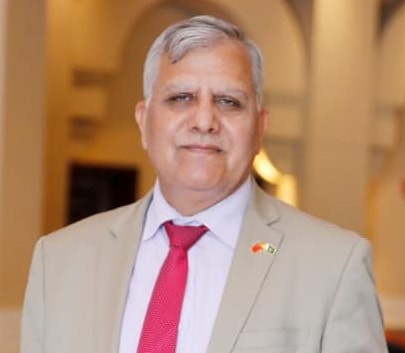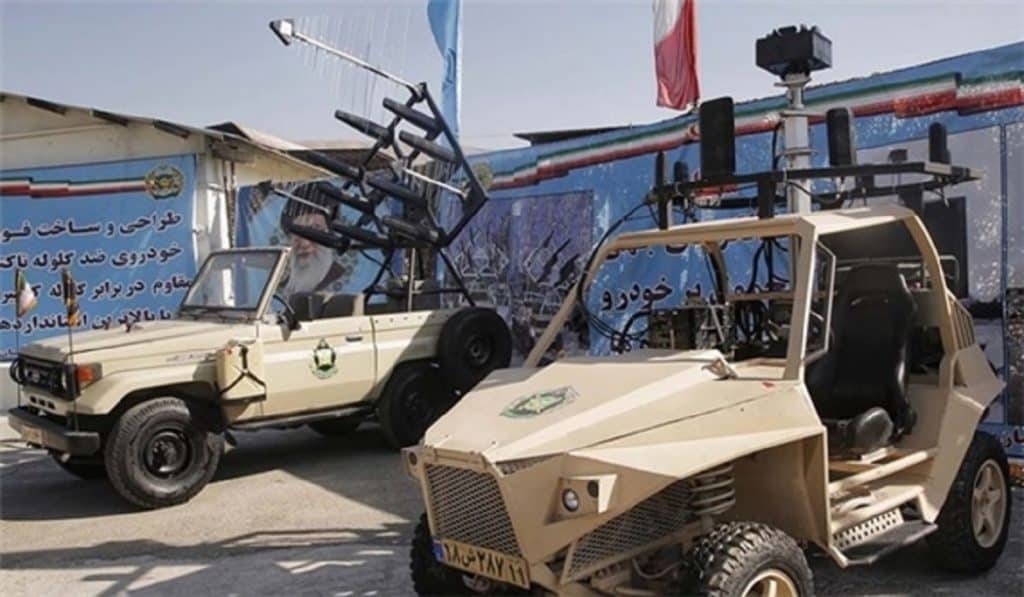By Prof. Engr. Zamir Ahmed Awan
Once again, Secretary of State Mike Pompeo warned that the United States would bang sanctions on any individual or entity contributing to Iran’s weapons program.

This move will likely further aggravate tensions between Washington and Tehran. “Any nation that sells weapons to Iran is depriving the Iranian people by enabling the regime’s deviation of funds away from the people and toward the regime’s military aims,” he added.
Defense Secretary Mr. Esper followed on Pompeo’s comments and said the Pentagon was “ready to respond to future Iranian aggression” and called on Tehran to “act like a normal country.” “We remain to stand shoulder to shoulder with our partners and associates to counter Iran’s disrupting behavior. In doing so, we will safeguard our people and our interests and maintain the security of like-minded nations across the region,” Esper added.
Whereas despite the U.S. opposition, the 13-year conventional arms embargo on Iran has ended, but the implications for Iran and the region remain uncertain.
Almost for the last decade, Iran, under various U.N. sanctions, was not allowed to buy arms from any country, while the enemies of Iran were piling the latest and lethal weapons, directly threatening Iran. The gap between Iran and its enemies has grown disproportionally, leaving Iran much behind. It is very much apparent, Iran may need to procure weapons from reliable sources to narrow down the gap. It may prompt an arms race. Iran’s economy may not allow procuring weapons to meet its defense needs lavishly.
Iran’s Foreign Ministry broadcasted that the “Islamic Republic of Iran might acquire any necessary arms and equipment from any source without any legal constraints and merely based on its defensive needs.” However, Tehran said it has no plan to go on a purchasing extravaganza of conventional arms.
Under the U.N. arms sanctions, the export of “certain conventional arms to Iran” and the “procurement of any arms or correlated material from Iran” violates the U.N. Security Council resolution and is subject to consents. However, the U.N. Security Council declined in August to support a U.S. effort to extend the arms embargo against Iran. China and Russia voted against Washington’s actions, while even close U.S. friends such as Britain, France, and Germany refrained. Only the U.S. and the Dominican Republic voted for an extension.
In response, the United States alone reimposed U.N. sanctions on Tehran last month through a snapback process. Other U.N. Security Council members have earlier said Washington does not have the authority to implement because it withdrew from the nuclear Deal in 2018.
The root cause of the tensions between Washington and Tehran have appeared after President Donald Trump’s unilateral withdrawal from the landmark Iran nuclear agreement in 2018, calling it “the worst deal ever.”
The 2015 accord lifted economic sanctions on Iran that crippled its economy and cut its oil exports roughly in half. In exchange for economic sanctions relief, Iran accepted limits on its nuclear program until the terms expire in 2025. Iran is religiously following the agreement, and there is no sign of any violation of the Nuclear-Deal. All other signatories, like the UK, Germany, France, Russia, and China, are satisfied and stand firmly with Iran on this agreement. Only the U.S., who irrationally withdrew and lost its right to say anything regarding this Deal legally.
The 13-year embargo imposed by the United Nations Security Council (UNSC) came to an end on 18 October 2020 as part of Resolution 2231 of the Joint Comprehensive Plan of Action (JCPOA), an agreement signed in 2015 that gave Iran sanctions relief in exchange for curbs on its nuclear program.
In an official statement issued by state media, the Iranian foreign ministry said, “as of today, all limitations on the transfer of arms, related activities and financial services to and from the Islamic Republic of Iran … are all automatically terminated.” The end of the restriction means Iran will legally be able to buy and sell conventional arms, including missiles, helicopters, and tanks, and the Iranian foreign ministry said the country can now “acquire any necessary arms and equipment from any source without any legal constraints, and merely based on its self-protective needs.” However, Iran was self-reliant on its defense already and manufacturing weapons to meet its basic needs.
Furthermore, China and Russia, or any other country pondering arms sales to Iran, would act based on their foreign policy interests, which would have to consider the balance of power and future economic interests in the Gulf and the wider region. Iran and China have been considering a major 25-year strategic partnership deal, the details of which have yet to be published.
As for Russia, a 2019 U.S. Defense Intelligence Agency report speculated Iran would buy Su-30 fighters, Yak-130 trainers, T-90 tanks, Bastion mobile coastal defense missile systems, and the S-400 surface-to-air missile defense systems.
Author: Prof. Engr. Zamir Ahmed Awan, Sinologist (ex-Diplomat), Editor, Analyst, Non-Resident Fellow of CCG (Center for China and Globalization), National University of Sciences and Technology (NUST), Islamabad, Pakistan.
(The views expressed in this article belong only to the author and do not necessarily reflect the editorial policy or views of World Geostrategic Insights).







